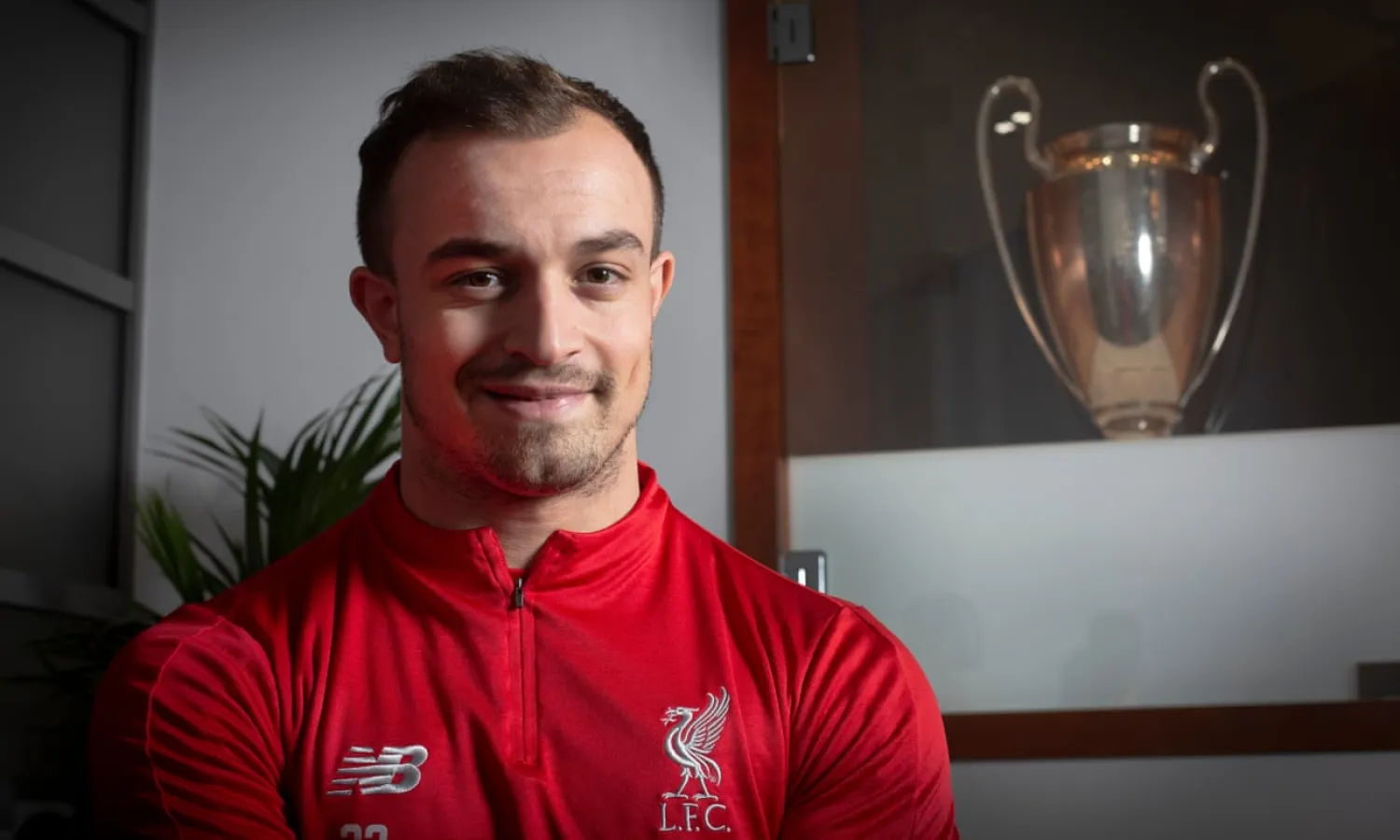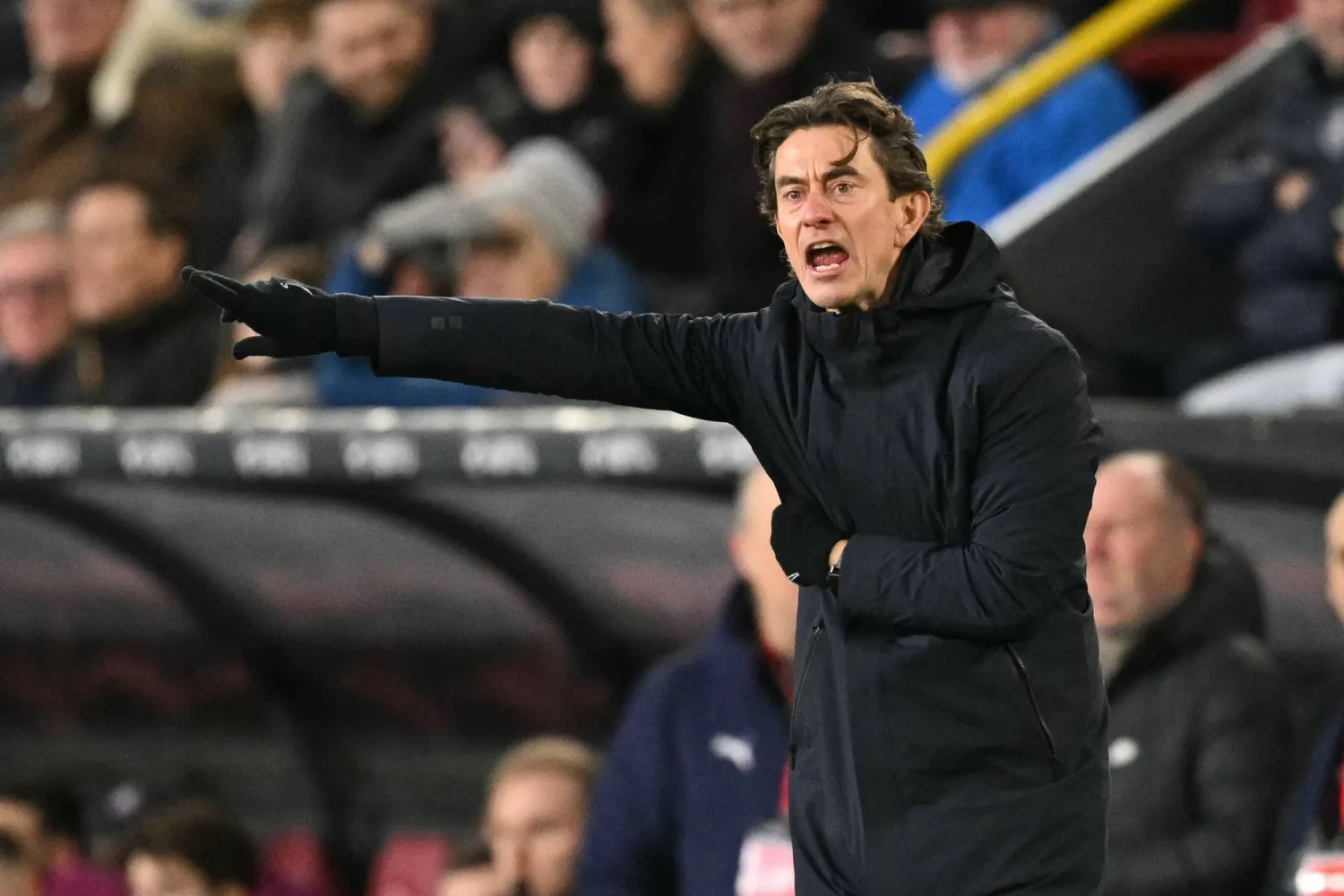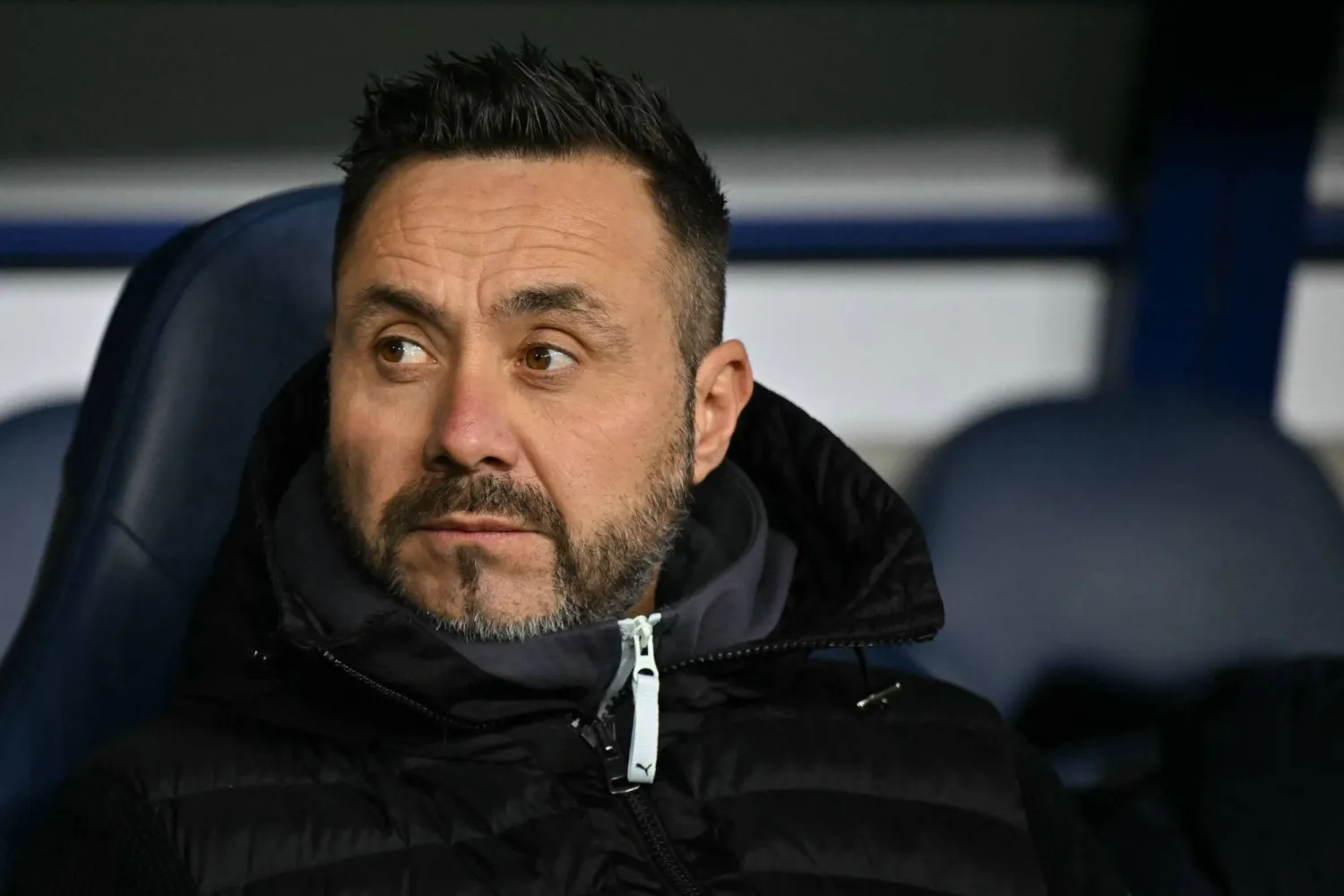“Big Shaq in the building,” boomed Virgil van Dijk as Liverpool’s victorious players returned to their changing room on Sunday. Xherdan Shaqiri – all five foot, six inches of said “Big Shaq” – had made his presence felt at Anfield before the starring cameo against Manchester United that prompted Van Dijk’s proclamation. Even so he is genuinely taken aback by the reaction to the special day that did for a former special one.
“It has had a big impact,” Shaqiri says of his matchwinning contribution for Liverpool against the old adversary. “I can see it from the people working here.” He is referring to Melwood, a hive of activity as Jürgen Klopp’s players prepare for Friday’s visit to Wolverhampton Wanderers, pose for photoshoots and film Christmas greetings. Georginio Wijnaldum is sporting a Santa hat while recording a festive message for supporters. Jordan Henderson high-fives two young fans on a visit to the training ground. Shaqiri looks sheepish at the acclaim reserved for him since Sunday. He adds: “We had the Christmas party that night and it seemed everybody was coming over to me to say thank you. I was quite surprised. Everybody was saying; ‘Thank you, thank you, you’re a legend already!’ That was nice to hear, and it was a nice feeling that day, but I’m a guy who closes each day and looks forward. In the end it was a Premier League game with three points and now I am looking forward to the next one on Friday.”
Shaqiri echoes Klopp’s instruction about one game at a time, as all his players do, a mantra that has served Liverpool particularly well during a gruelling run to the Premier League summit. In truth, however, it has been impossible for the Switzerland international to move on from scoring twice against United given the closure it signalled for José Mourinho at Old Trafford. United’s conqueror and the man with the final nails for Mourinho to boot, Shaqiri will never be allowed to forget his place in Anfield’s affections even if he wanted to.
“I had a lot of messages from my friends when it happened,” he says of Mourinho’s sacking. “There were a lot of good messages about the United game at first and then, when the news came out about Mourinho, I had messages saying: ‘That’s your fault!’ But this is football sometimes. I don’t think it was just because we won that game that United wanted to change their manager. There were other reasons but it means the game goes down in history. It will always be in my history too.
“I’m very glad I helped the team win. That is the most important thing and I was delighted to have an impact on such an important game. I knew before that there was a big rivalry between Liverpool and Man United but to score two goals was very beautiful. I will never forget this game. It was a special day not only for me but for the club, too, and to be back on top of the table is always a nice look.”
Shaqiri is the first Liverpool substitute to score twice against United and Sunday’s brace took him to five goals for the season, more than he scored in his first two full seasons at Stoke City. The 27-year-old cannot avoid questions about adapting to a squad role at Anfield after being accustomed to regular football with Stoke. He does not avoid giving answers about the difficulty of the transition. He is also sincere in his belief that playing for Klopp and Liverpool, a manager who brings out the best in him and a club that satisfies his craving for Champions League football again, provides ample compensation.
“This team and this coach have given me everything,” explains Shaqiri, whose 17 appearances for Liverpool so far include nine starts. “You can see on the pitch that I feel very happy here and am playing maybe my best football. I’m a player who always wants to improve and this has been the perfect move for me. I’m delighted with how it’s going.
“Every player wants to play, that’s pretty normal. Every player is unhappy when he’s on the bench, that’s pretty normal too. But it’s football, only 11 players can start, and the coach has his gameplan for each game. It’s OK how it’s going at the moment. I wanted to play Champions League again. I had played in it before and I missed the Champions League a lot, so I wanted that again and the chance to play there again with Liverpool was perfect.”
It was perfect also for Shaqiri’s parents, Fatime and Isen, who share both his love for English football and pride in returning to the level he enjoyed with Bayern Munich and, to a lesser extent, Internazionale.
The forward says: “My parents watched the United game on TV in Switzerland and said they were going crazy when I scored. They are very proud of me that I’m playing for a top club, a great club, again. My parents wanted me to stay in England because they love the football here and how the people feel about football. It was important for them too that I stayed in the Premier League. I’m very proud with how my story has gone. I’ve played for some very big teams and it is not normal how I got there. It is a dream for every player to have this kind of career, so I am very proud of this.”
Isen and Fatime left Kosovo with their three sons – who all eventually played for Basel’s youth teams – when Shaqiri was four years old, before the war started. His father washed dishes in a restaurant when the family first arrived in Switzerland before finding work in construction. His mother was a cleaner, Xherdan her assistant. His family background accompanies Liverpool’s man of the moment each time he sets foot on the pitch.
“You can see my history on my football boots with my flags,” he explains. “A lot of people have misunderstood this. I was born in Kosovo and grew up in Switzerland. Some people think I’m not giving everything for Switzerland because I have the flag of Kosovo on one foot but that is totally wrong. It is a big part of my history, my life history, and will always be with me. The Swiss flag is on my left foot because I score with that but I scored one with my left and one with my right against Man United so it was one for both! I had big flags on the back of my boots for the World Cup. The flags I have now are smaller but they are there.”
The Football Association of Serbia complained to Fifa about the Kosovo flag on Shaqiri’s boot after he scored a last-minute winner against their team at this summer’s World Cup. He was fined 10,000 Swiss francs for a double-headed eagle celebration – similar to the one on the Albanian flag – and omitted from Liverpool’s Champions League visit to Red Star Belgrade last month by Klopp to avoid inflaming tensions further.
“I understood his decision,” Shaqiri admits. “He wanted more concentration on the game, that was the only reason, and it was the right choice because there was a lot of attention only on me even in the game in Liverpool. It was the right decision not to bring more attention to a Champions League game.”
The reception promises to be different when Liverpool resume their Champions League campaign next year at Bayern, where Shaqiri won two Bundesliga titles, the Champions League, two German Cups, the German Supercup, Uefa Super Cup and Club World Cup in two and a half years. Often the wins were at the expense of Klopp’s Borussia Dortmund. “We were not only a very good team but we were like a big family,” he reflects. “Every player played very well and I think we were the best team that Bayern Munich ever had in their history.”
Shaqiri was part of a title-winning team for five consecutive seasons between 2010 and 2014 including a hat-trick of Swiss Super League triumphs with Basel. “I hoped it would always be like that,” he says. It is a feeling he is determined to relive with Liverpool.
He adds: “I know how it is to lift trophies. It is amazing to have these celebrations with the fans and it is my dream to have the same again with this club. This is our goal. We have shown so far that we can hold our nerve. We are on a very good way. We are strong offensively and defensively so there is a very good balance in the team. That is very important for winning titles.”
The Guardian Sport









